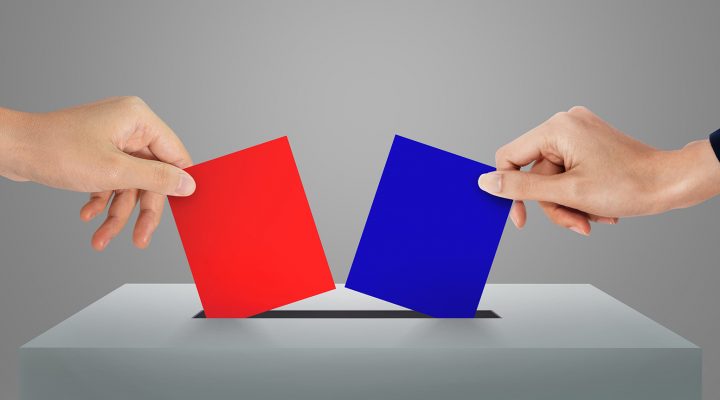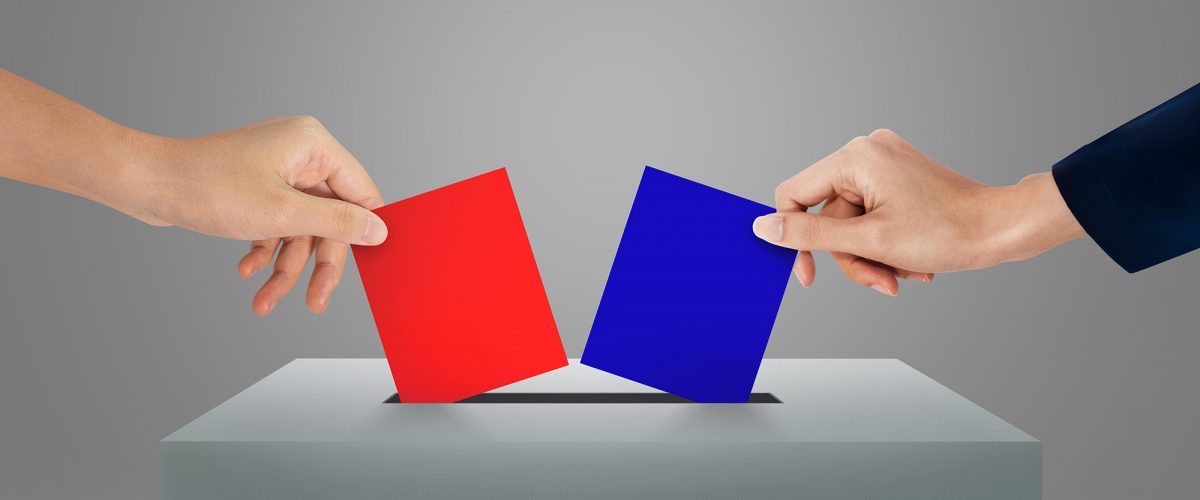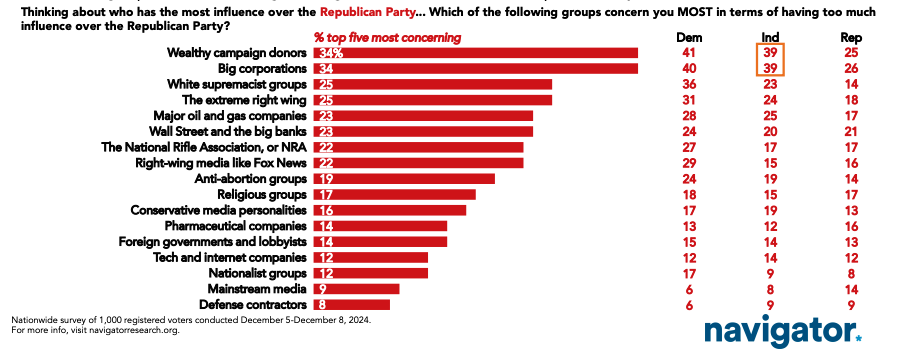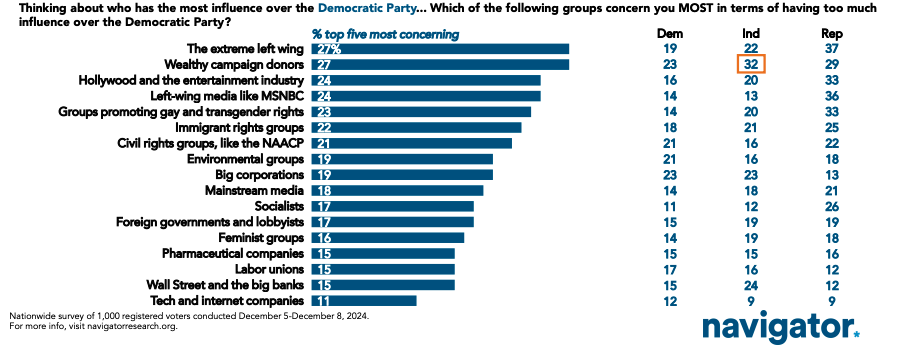Most Americans view Republicans as decisive and proactive as well as inherently dishonest and uncaring, according to a new Navigator Research report.
Democrats, on the other hand, are viewed by a majority as a friend to the middle class and LGBTQ people but also focused on groups that exclude most voters, the research group said in “Voter Perceptions of the Democratic and Republican Party Brands.”
The report presents findings from a December opinion poll of 1,000 registered voters, focus groups and hundreds of interviews conducted with registered voters across the political and racial spectrum. The goal was to present progressive leaders and communicators with an assessment of voter attitudes toward the leading political parties and their perceived strengths and shortcomings.
When asked about the “Republican brand,” most considered it to be unethical, insensitive and overly focused on corporate interests while also being direct, understandable and effective at achieving goals.
The major traits attributed to Republicans include having “strong and decisive leadership” (59%), “prioritizes other groups of people that don’t include me” (56%) and “gets things done and delivers” (56%). The qualities least descriptive of Republicans were “spends money in a way that helps me personally” (47%) and “tells the truth” (46%).
One focus group participant, described as a strong Republican, compared the party to an English Bulldog, the study reports. “They’re usually called bullies. And I think Republicans can be viewed as bullies and English Bulldogs are very stubborn, which I think you could characterize Republicans as pretty stubborn in their beliefs.”
In another session, a Republican-leaning independent in Michigan also compared Republicans to dogs: “They’re in your face. First reaction, you’re hearing them. First reaction, they’re moving, they’re doing stuff. Whether it’s right or it’s not, you always know their moves.”
But the party’s sense of certainty and penchant for quick action made many voters both hopeful and wary for long-term success. Some expressed ambivalence about another Trump presidency, Navigator notes.
A Georgia man described as a “weak Republican” said he is “cautiously optimistic” about the incoming administration: “Well, I think I liked a lot of things Trump did the first time around. I liked that he cut taxes, I liked his foreign policy. I guess I’ll wait and see how he does this time around.”
Voters also were concerned that wealthy campaign donors, large corporations, white supremacist groups, rightwing extremists and gas and oil companies have too much power over Republicans, the report says. The National Rifle Association, rightwing media including Fox News, anti-abortion groups and conservative media personalities also made the list.
Navigator said the research has exposed a wide disparity between voters’ views of Republicans’ strengths and weaknesses. “These insights illustrate that while Republicans are viewed as decisive and action-oriented, there is a significant perception gap regarding their priorities and integrity. Voters recognize Republicans’ ability to take action but remain skeptical about whether their interests are truly being served as a byproduct.”
As for Democrats, focus group discussions uncovered perceptions of them as weak and easily influenced by special interests and driven more by external pressures than by passion or commitment for causes.
An independent-leaning Democrat in Pennsylvania compared Democrats to a Koala bear “because they are complacent and lazy about getting policy wins that we really need.”
“I think of minnows, just a big school of little fish swimming together,” said an independent voter in Pennsylvania. “‘Oh, we’re going where everybody else is going and we’re doing what we’re supposed to do, and nobody knows why, but we’re all just kind of moving along and doing what’s expected.’”
The survey found 58% of Americans believe the Democratic Party “prioritizes other groups of people that don’t include me” while 53% believe Democrats “look out for the middle class” and half say they “share my values,” according to the report.
Qualities least associated with the party include “gets things done and delivers” and “has strong and decisive leadership,” each representing 45% of voters. Democrats also are perceived as focusing on LGBTQ people (46%), followed by low-income Americans (32%), people of color (30%), women (26%) and the middle class (26%).
“Furthermore, voters are increasingly concerned about who truly influences the Democratic Party,” the report states. “Our survey indicates that 27% are most worried about the extreme left wing, another 27% about wealthy campaign donors, and 24% about Hollywood’s influence.”
Other groups perceived to have excessive power over Democrats include media like MSNBC, LGBTQ rights organizations, immigrant-rights groups, civil rights groups like the NAACP and environmentalists.
A Democratic woman from Pennsylvania voiced disillusionment with her party during a focus group session. “They’re not a friend to the working class anymore,” she said, adding Democrats now prioritize “their own political gain, lobbyists and others associated with organized structures.”
This attitude is about much more than Democratic policy, the study notes. “A Democratic-leaning independent from Pennsylvania described Democrats as ‘a wolf in sheep’s clothing,’ suggesting that while they present ‘a smiling face,’ they work behind the scenes to ‘rip apart anybody that’s in their way.’”
It’s clear significant numbers of voters perceive Democrats as lacking authentic leadership dedicated to the everyday challenges of Americans, the report concludes. “Especially in the tough economic times of the last few years, voters were looking for concrete, understandable solutions that tackle their everyday challenges, and they were looking for solutions that would actually get done and create results they could see and feel.”





